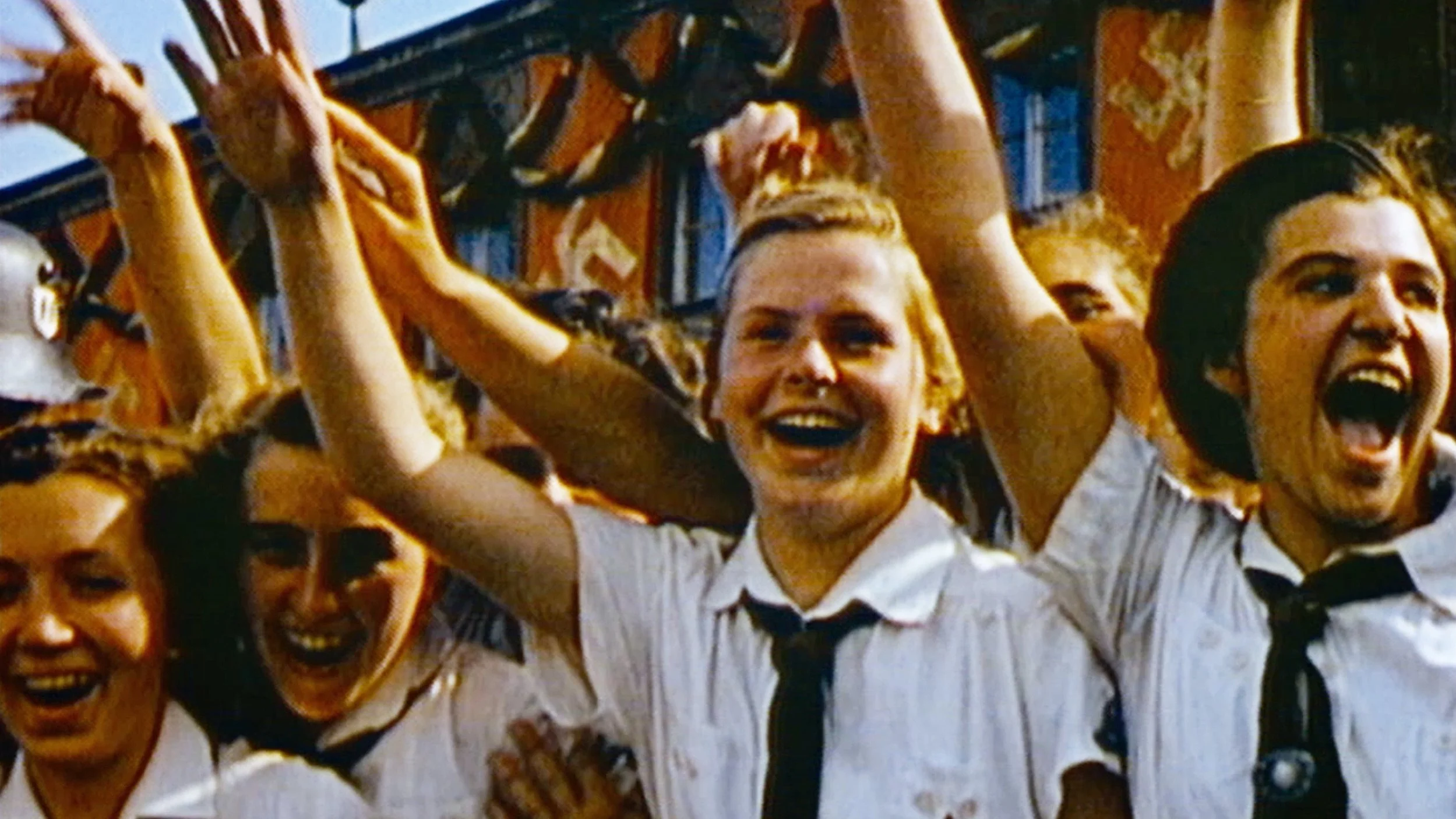Final Account
A fresh view of Nazi Germany shows how it is now viewed by Germans who were originally supportive of the Third Reich.
Luke Holland, the man who conceived this film, sadly died in June 2020 about three months before it premiered at the Venice Film Festival but he had at least lived long enough to see it through post-production despite having received a diagnosis of terminal cancer in 2015. Preparing Final Account took up his later years since from 2008 onwards it involved him in interviewing over three hundred Germans old enough to have experienced life during the Third Reich, the oldest of them being nineteen when the Nazis came to power.
It is apparent from Holland's own life both why he would devote himself to such a lengthy and formidable project and how personal to him it was: as a teenager he had come to learn for the first time that, although he had been born in England, his mother was a refugee from Vienna whose parents had been killed in the Holocaust and he had not previously been aware that he was Jewish. When his career as an exhibiting photographer led on into making films for television he understandably included in his output documentaries relating to events in the Nazi era in Germany. However, setting out to capture the personal testimonies for Final Account was his most substantial work in this field by far. Indeed, while the film stands as an apt selection from the material gathered, far more footage was obtained and will be available in archives in London and Paris, a rich source for historians and sociologists.
When it comes to assessing Final Account as a film, it might prompt the thought that the Holocaust has been featured so often on screen - not least in the life-long work of the late Claude Lanzmann - that Holland’s documentary would be unlikely to cover new ground. Yet in the event he gives us something different because it is concerned on a broad basis with the impact of the Holocaust on Germans who lived through it, be they perpetrators or simply civilians. We have had at least one fascinating film on these lines in My Nazi Legacy made by David Evans in 2015, but that concentrated specifically on two sons of Nazis one of whom was repelled by his father’s actions while the other desperately resisted accepting his father for what he was. Final Account by featuring so many interviewees is operating on a broader basis.
Holland and his editor Stefan Ronowicz have efficiently combined the fresh interview footage with clips from home movies and archive material thus illustrating visually the period when the interviewees were children or adolescents but Hitler was already in power (they sometimes in the process contradict the sentiments being expressed). However, while it has long been difficult to give credence to those adult Germans who later claimed to have been unaware of the concentration camps, the film does enable us to realise that for those who were growing up in those days some element of mitigation does exist. From 1936 all Aryan children were required to participate in Nazi youth groups from the age of six and for boys that would lead on to joining Jungvolk at ten and Hitler Youth at fourteen. With this procedure and the conditioning inherent in it having become part of the fabric of society you can see how difficult it must have been to resist. In contrast to that, what emerges as so unforgivable is the fact that many of the interviewees seen here remain even now in denial. Admittedly there are those like Hans Werk who today speak out and are appalled at having been led into joining the SS in their youth. But others are shiftily dishonest in facing up to the past actions of Germany and to their own involvement. Some still declare in old age their admiration for Hitler or their lack of concern over such events as Kristallnacht. Just as one is horrified by those who question the scale of the Holocaust or that it took place at all, much that is said here is highly disturbing. That includes admiration expressed for the SS as an elite body accompanied by a refusal to acknowledge the horrors that they perpetrated.
Despite the emphasis being different, Final Account does in one way suffer from being another film about the Holocaust. However fine the quality of fresh works of this kind, for the critic it does mean that the supremacy of much of Lanzmann’s work (Shoah especially) and of the Alain Resnais masterpiece Night and Fog does prevent one from giving the highest of ratings to such pieces as Final Account and the recent Getting Away with Murder(s). Both of these works are certainly deserving of a high recommendation and in Final Account Holland shows the same kind of restraint that served Night and Fog so well. Without raising his voice, he looks and listens and he invites us to do so too recognising that we will all be making our own assessments. Only late on does the interviewer adopt a sharper, more pressing tone creating an extra intensity. It provides the film with a real sense of climax, one that releases the emotion that has been building up in the viewer throughout. Luke Holland may not have lived to witness audience responses to his film, but he must surely have been aware that his labours had created a document of power and substance.
MANSEL STIMPSON
Featuring Hans Werk, Herbert Fuchs, Karl Hollander, Herman Knoth, Marianne Chantelau, Otto-Ernst Duscheleit, Margrete Schwartz, Klaus Kleineau, Karl-Heinz Rinne, Franz Spalek, Friedrich Eder, Heinrich Schulze.
Dir Luke Holland, Pro Luke Holland, Riete Oord and John Battsek, Screenplay Luke Holland, Ph Luke Holland, Ed Stefan Ronowicz, Music Dirac Sea and Jóhann Jóhannson.
Participant/Passion Pictures/ZEF Productions-Universal Pictures.
94 mins. UK/USA. 2020. US Rel: 21 May 2021. UK Rel: 3 December 2021 Cert. 15.


